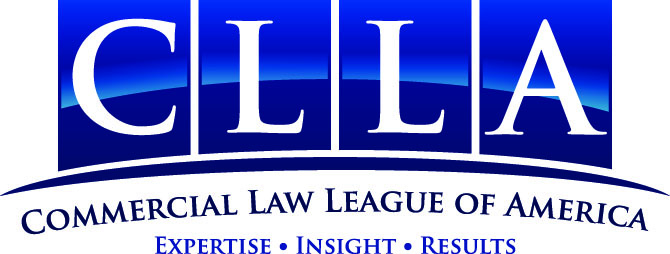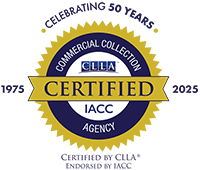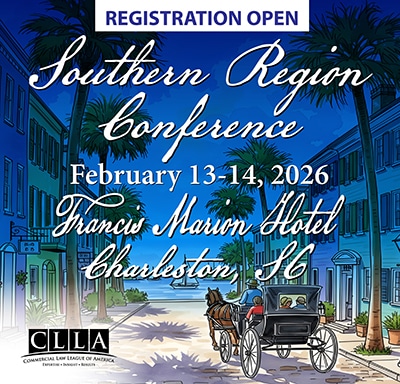2021 Newswire
ARCHIVAL
2021
October 15, 2021
UPDATE Bill H.R. 5554
On October 12, 2021 Bill H.R. 5554 was introduced to the House.
Official Title: To amend title 11 of the United States Code to prohibit the payment of bonuses to highly compensated individuals employed by the debtor and insiders of the debtor to perform services during the bankruptcy case, and for other purposes.
Sponsored by Rep. Cheri Bustos (D-IL-17)
Co-sponsored by Rep. Tim Burchett (R-TN-2
August 19, 2021
H.R. 4907
A Bill to amend title 11 of the United States Code to modify the dischargeability of debts for certain educational payments and loans, was introduced to the house on August 3, 2021.
It is sponsored by Rep Steve Cohen and has two cosponsors, Rep. Eric Swalwell and Rep. Danny Davis, both of whom are Democrats. There have been no votes since introduction.
August 11, 2021
H.R. 4777 Bankruptcy Bill Introduction
H.R.4777 to amend title 11 to prohibit nonconsensual release of a nondebtor entity’s liability to an entity other than the debtor, and for other purposes, was introduced to the house on 7/28/2021. There have been no votes since last action.
August 4, 2021
Senate Bill Calls for Federal Student Loan Bankruptcy Discharge
According to an emailed statement, a bill has been proposed by Democratic Senator Dick Durbin and Republican Senator John Cornyn that allows student loan borrows to seek to discharge loans in bankruptcy after a period of ten years.
- Before 1998 there was a similar bankruptcy discharge option.
- The “Fresh Start Act” will require that colleges with high default and low repayment rates, partially reimburse the government.
Please find summary of the proposed bill attached.
May 28, 2021
H.R. 428 – No Bonuses Ahead of Bankruptcy Filing
Official Short Title: No Bonuses Ahead of Bankruptcy Filing Act of 2021
Official Title: To amend title 11 of the United States Code to prohibit the payment of bonuses to highly compensated individuals employed by the debtor and insiders of the debtor to perform services during the bankruptcy case, and for other purposes.
This measure which was introduced in the house on January 21st, and then referred to the House Committee on the Judiciary. H.R. 428 was recently referred to the Subcommittee on Antitrust, Commercial and Administrative law. It is sponsored by Representative Greg Steube (R-FL), and currently has no cosponsors. The intent of the bill is to prohibit debtors in bankruptcy from paying bonuses to certain highly compensated employees or insiders (such as relatives) for two years.
May 27, 2021
Student Loan Rules Rewrites – White House and Education Department
The White House (WH) and Education Department (ED) are beginning steps to rewrite Trump-era rules on student loans and college accountability. The White House has scheduled a series of hearings for June 21st, 23rd and 24th on new potential regulations for higher education. Rulemaking committees in the ED expect to assist in the process by late summer.
This comes on the heels of a May 21st letter from Senators Elizabeth Warren, Tina Smith, Chris Van Hollen and Richard Blumenthal to current Education Secretary Miguel Cardona (full version attached). In the letter they asked for details on how the ED plans on holding accreditors responsible on for-profit collegiate oversight, inform students of warning signs of for-profit college collapse, address high-pressure recruiting tactics often directed at low-income students or students of color, increased transparency of graduation rates and post education earnings compared to high school graduates, and enforcement actions therein. The Education Department’s response is to arrive by June 4th.
April 28, 2021
Mounting Pressure & Student Loan Forgiveness
As the first 100 days of the Biden administration draw to a close this week, pressure on student loan debt forgiveness increases. Apart from requesting further information from Education Secretary Miguel Cardona, the Biden administration’s apparent lack of action is leading to mounting tension. There seems to be a general consensus that progressives simply are not going to be turned away from student loan debt forgiveness, in some form. Pressure to ameliorate the racially skewed student debt is becoming a larger discussion of impact with virtual events this weekend May 1st, the National College Decision Day. Part of that discussion compares the statistics that after a 20 year time period the average black borrower still owes 95% of their debt, while white borrowers have paid off almost the same amount (94%).
The proposed forms for student loan debt forgiveness are many and varied. Currently there are calls ranging from $50,000 worth of forgiveness to $10,000 per student, requests for this to be legislative action, and others for this to be entirely executive action, even adding a student loan debt provision to the American Families Plan (the second part of the infrastructure package).
This variety in scope and intent is mirrored in the new legislation in the 117th Congress including this month’s S. 1173 and H.R. 2730. S. 1173, sponsored by Senator Kyrsten Sinema (D-AZ) and cosponsored by Senator Mitt Romney (R-UT), is titled “A bill to establish a matched savings program for low-income students” and was introduced on April 15th. Contrasting this Representative Pramila Jayapal’s (D-WA) H.R. 2730 “To amend the higher Education act of 1965 to ensure College for All” was introduced on April 21st and started with 34 cosponsors.
Those in opposition to student debt forgiveness are being quoted as calling it “incredibly, fundamentally unfair”, while others claim it will contribute to inflation or encourage people to take on “irresponsible levels of debt”.
April 7, 2021
H.R. 1651
H.R. 1651 has successfully been signed into law as “Public Law 117-5” on March 27th. The COVID-19 Bankruptcy Relief Extension Act of 2021 has pushed further financial stress out to the end of March 2022.
April 7, 2021
Senate Banking, Housing and Urban Affairs Committee’s Subcommittee on Economic Policy
The Student Debt Burden and Its Impact on Racial Justice, Borrowers, &
The Economy
LIVE HEARING
April 13, 2021 at 2:30 P.M.
The Senate Banking, Housing and Urban Affairs Committee’s Subcommittee on Economic Policy is having a hearing on April 13th, at 2:30 PM. It is titled “The Student Debt Burden and Its Impact on Racial Justice, Borrowers, & The Economy.” The current witness for Panel I will be Rep Ayanna Presley (D-MA). Panel II will have 3 witnesses: Massachusetts Attorney General Maura Healey, Pennsylvania Higher Education Assistance Agency President and CEO James Steeley, and Navient President and CEO John Remondi.
It will be broadcast live: https://www.banking.senate.gov/hearings/the-student-debt-burden-and-its-impact-on-racial-justice-borrowers-and-the-economy
April 2, 2021
FACEBOOK V DUGUID USSC19-511
March 17, 2021
S.146
March 17, 2021
H.R. 1651 and S. 473 – COVID–19 Bankruptcy Relief Extension Act of 2021
Bills H.R. 1651 and S. 473 share the same name and intent.
COVID–19 Bankruptcy Relief Extension Act of 2021
Official Short Title: To amend the CARES Act to extend the sunset for the definition of a small business debtor, and for other purposes.
House Judiciary Chair Rep. Jerry Nadler (D-NY) introduced HR 1651 on March 8th. It was referred the House Committee on the Judiciary and has one co-sponsor Rep. Ben Cline (R-VA). The bill would extend the CARES act bankruptcy relief through March 27, 2022. A two-thirds majority would be required for passage in the House.
S. 473 was introduced by Senate Judiciary Chair, Sen. Dick Durbin (D-IL) on February 25th, 2021 and was referred to the Senate Committee on the Judiciary. It has one co-sponsor Sen. Chuck Grassley (R-IA). This would also extend the CARES Act through March 27, 2022.
The House of Representatives will vote on H.R. 1651, the COVID–19 Bankruptcy Relief Extension Act of 2021, on March 17, 2021. The vote will be considered under a suspension of the rules, which means that the bill requires a 2/3 vote for passage. Passage is expected.
The full texts for both bills are attached.
February 25, 2021
S.146
February 11, 2021
February 11, 2021
February 5, 2021
S.146
February 2, 2021
City of Chicago v Fulton
The Supreme Court has handed down a very valuable opinion for creditors in the case of City of Chicago v Fulton, decided January 14, 2021, holding 8-0 that mere possession of a bankrupt debtor’s property does not violate the automatic stay under §362(a)(3) of the Bankruptcy Code.
Several Chicago-area citizens, whose cars had been impounded by the city for unpaid fines, filed Chapter 13 bankruptcy cases and demanded return of the cars under the theory that the City’s retention of the car was a violation of the automatic stay. In the bankruptcy court, the City was held to have violated the stay and appealed the decisions to the Seventh Circuit, which affirmed the bankruptcy court, and ultimately to to the Supreme Court. The Supreme Court held that the City’s retention of cars which had been lawfully impounded was not a violation of the automatic stay.
The decision turns on the Supreme Court’s determination that the mere retention of property already in a creditor’s possession is not an “act … to exercise control over property of the estate” in violation of §362(a)(3). Looking at the definition of the word “act” the Court concluded that “the language of §362(a)(3) implies something more than merely retaining power is required to violate the disputed provision.” (Slip Op. p. 4) The act, apparently, was taking the car – pre-petition – not holding onto it.
The decision is limited to this single holding – retention is not a stay violation – and does not attempt to address the right of a debtor to obtain possession of her property via any other provision of the Bankruptcy Code, such as §542’s provision for turnover of property to the estate or whether any other action by the creditor might violate the stay. The narrow holding here is that a creditor in possession of a bankrupt debtor’s property is not obligated to surrender it or face sanction for violation of the automatic stay.
Justice Sotomayor writes a concurrence which points out that the Court’s decision, while correct on the narrow interpretation of the law, works a significant hardship on many Chapter 13 debtors who might need their impounded car to earn the money needed to fund a plan. In this she is indisputably correct, as the individual Respondents in this case plainly demonstrate, but in concurring with the decision she agrees that the solution is not to claim the City violated §362, instead suggesting that the Rules of Bankruptcy Procedure should address the issue. For creditors, the ruling removes what many courts had imposed as an affirmative duty on creditors and moves responsibility for obtaining the estate’s property back to the debtor and trustee.
Two areas where debtors’ counsel have used the potential of a stay violation to impose a duty on creditors are in bank garnishments and repossessions. In each instance, debtor’s counsel has typically demanded that the creditor takes steps to surrender possession – of the funds which have been delivered to the court by the bank or of the repossessed collateral – with the threat of sanction for violating the automatic stay as the basis. Based upon the Supreme Court’s ruling, there is no longer an affirmative duty on the part of the creditor to surrender property which has been lawfully secured solely on the basis that such possession violates §362(a)(3). In appropriate cases, debtors should be able to secure possession via §542 or other provisions of the Bankruptcy Code or state law, and nothing in the opinion gives creditors authority to do anything more than retain possession. But one result should be that secured creditors in particular will be in a far better position to negotiate protection of their claims, rather than having to surrender the collateral (and/or paying creditor’s counsel to secure the return).





